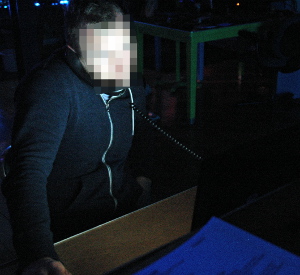 While there is no fool proof way to avoid being hacked, here is a list of tips in order to avoid from getting hacked.
While there is no fool proof way to avoid being hacked, here is a list of tips in order to avoid from getting hacked.
Never use easy to guess passwords. While “puppy” may seem like a fun password, it is an easily guessed password. A dictionary brute force attempt could guess the password “puppy” in under a second. While there is no real good way to know if your password is fool proof, most security experts recommend using a mixed letter, number, and symbol password combination of a length of 8 or more digits. Try to avoid using easy to guess words or dates.
Try to use different passwords for different website user accounts. Having the same password for all of your user accounts makes it easier for a hacker to gain more access and cause more issues for you.
If you think your password has become compromised, change it right away!
Never share your username or password. It seems pretty straight forward, but some people can be deceived into divulging their username and password by a hacker pretending to be a computer support technician, or somebody from the company IT department.
Never write your password down and leave it near your computer. Lots of people hate to remember their password and therefore write the password down on a sticky note, or piece of paper near their computer. This allows anybody who uses the computer to see your password in plain sight.
Always use password secured login on your computer. Even though Windows will let you just log in without a password, it is best to use a password based login on your computer. Don’t make it as easy as logging right in without a password.
Keep your computer free of viruses, spamware and malware. Most malicious programs will try to proxy your Internet connection or use key-logger programs in order to monitor all the network traffic to phish out usernames and passwords. Any computer that has become compromised by malicious virus should not be trusted with any username and passwords.
Never use a public computer to log into your bank account or other private accounts. Public computer are like public toilets, they are dirty and unsanitary and should not be trusted since you cannot be sure what programs have been installed on the computer, and could have malicious software or keyloggers installed waiting for your input.
Make sure nobody is watching you type your username and password. While it seems like it would be really hard for someone to watch your keystrokes in order to gain access to your password, it is absolutely possible.
Do not believe anyone who calls you and requests your username and password to gain access to your computer. A lot of recent tech scams involve a person calling you claiming they are from “Microsoft” and have detected a virus on your computer. They will request your username and password to login to the computer in order to remove the virus. If you haven’t guessed already, the person on the other end does not really work for Microsoft, and is just trying to cause you havoc.
Always check the url of the website you are logging into for authenticity. Fake emails that look authentic will oftentimes contain links that take unsuspecting victims to phishing website. These are websites that look similar if not identical to bank account login pages. If one looks at the URL bar though, they will notice that they are on another domain such as bankofamerica.hackeddomain.com. Always ensure you are actually putting your password into a trusted website.
Never log in over an unsecured connection or network. While it may seem like a good idea to jump on any open wifi network, just know that somebody could be listening to your network traffic as well. There are programs that allow a hacker to monitor all network traffic on an open network in order to search or usernames and passwords.
Try to change your password on a regular basis for best security measures. If you change your password on a regular basis, you are always staying one step ahead of the game of cat and mouse. It is recommened that users change their password at least once a year, and some banking website will force users to make this change as a security policy.
